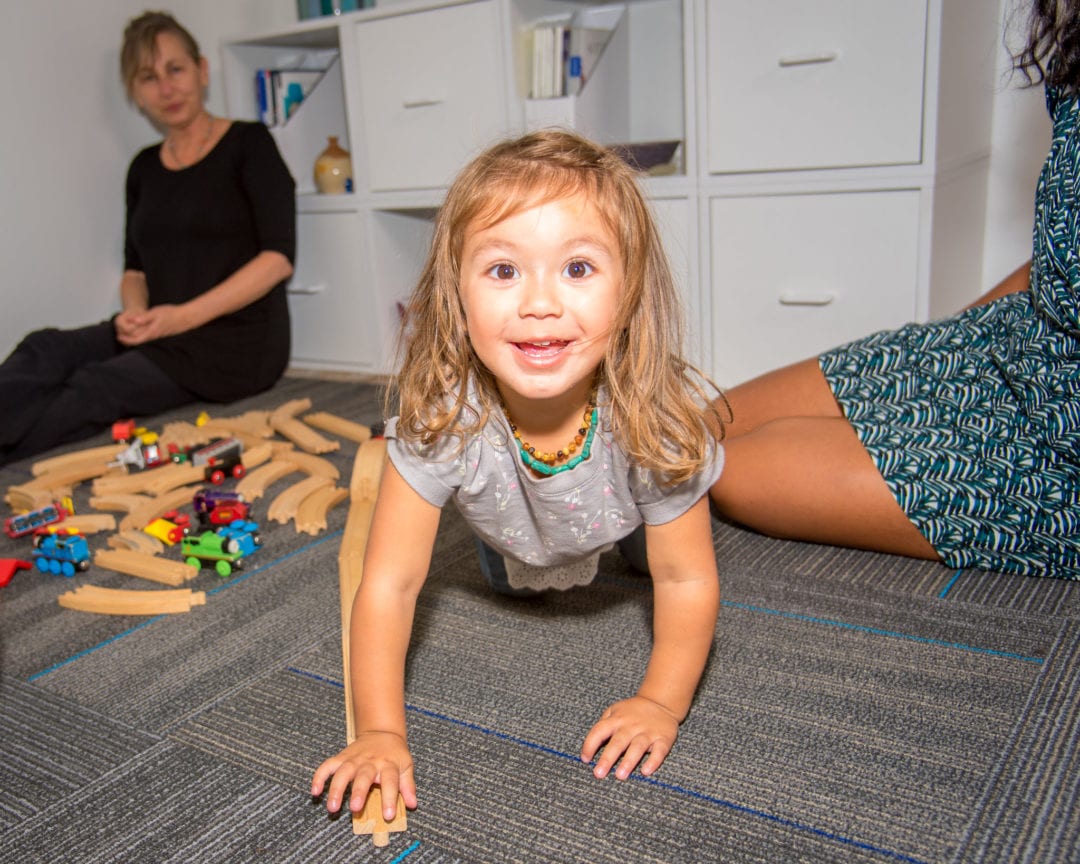
24 – 36 Months
This stage of development can often bring new challenges in the parent child relationship. Toddlers are fast, bold and opinionated. Curiously, while they are finding their voice in the world, a tot may also be shy in the company of others. A parent may want their child to be “friendly or respectful” to others, and cooperate at home. A tot might seem developmentally ready for this expectation as they are now childlike, less like a baby physically and biologically. Toddlers this age seem to understand everything.
Some toddlers have developed a broad expressive vocabulary by 24 months, and by 36 months are mostly quite fluent with language. In fact, a bi-lingual child might be able to speak 2 languages well by their third birthday! But, don’t let language fool you. Toddlers are very young and immature socially and emotionally, with one foot in their babyhood and one foot in the world of a very young child. Just yesterday they were babies.
This is the age of tot decision making. What feels hard for the adults is often about autonomy for the toddler. Giving choices may be very helpful. For example, you can hold this hand or this hand when we cross the street. Too many choices may overwhelm a toddler. Your toddler may cry, yell, and even have biting feelings. Their work is navigating autonomy with very strong feelings while in the company of a new and demanding world. Parents might ask their toddler to wait more, use the potty, play near others, and be part of meals for a longer span of time. The parent is ready for a more concrete partnership, and the toddler is ready to control their world.
Transitions may take a very long time for your tot. They often do at this age. It helps to make transitions part of the schedule of the day, and not what happens in-between daily events. Transitions become the event. Being playful, very calm, and having routines are good parent tools during the mid to late tot stage. Attachment is particularly important to notice. Is this behavior about wanting or needing their parent? Although toddlers may have a well developed vocabulary, they may be very non-verbal about getting you! They may love to read stories about the potty, or waiting, or going away and coming back, or pets, or….
Toddlers love to sing and be sung too. Hand motion songs are very enjoyable. In fact, songs can be helpful during moments that seem hard to navigate. Toddlers are learning about friends. Toddlers love to be with other children, but will mostly still play near and not with others. Although, playing with older children may look more successful, it is mostly the older child who is able to show ingenuity and flexibility. Toddlers are learning about both waiting for a toy and being all done with a toy. They need clear messages and choices. Toddlers this age will still need a nap, but napping may get harder as they are so busy playing. This age likes to run, climb, paint, and squish. Toddlers call on their grown-ups to be an emotional anchor, compassionate, reflective, and very present.

